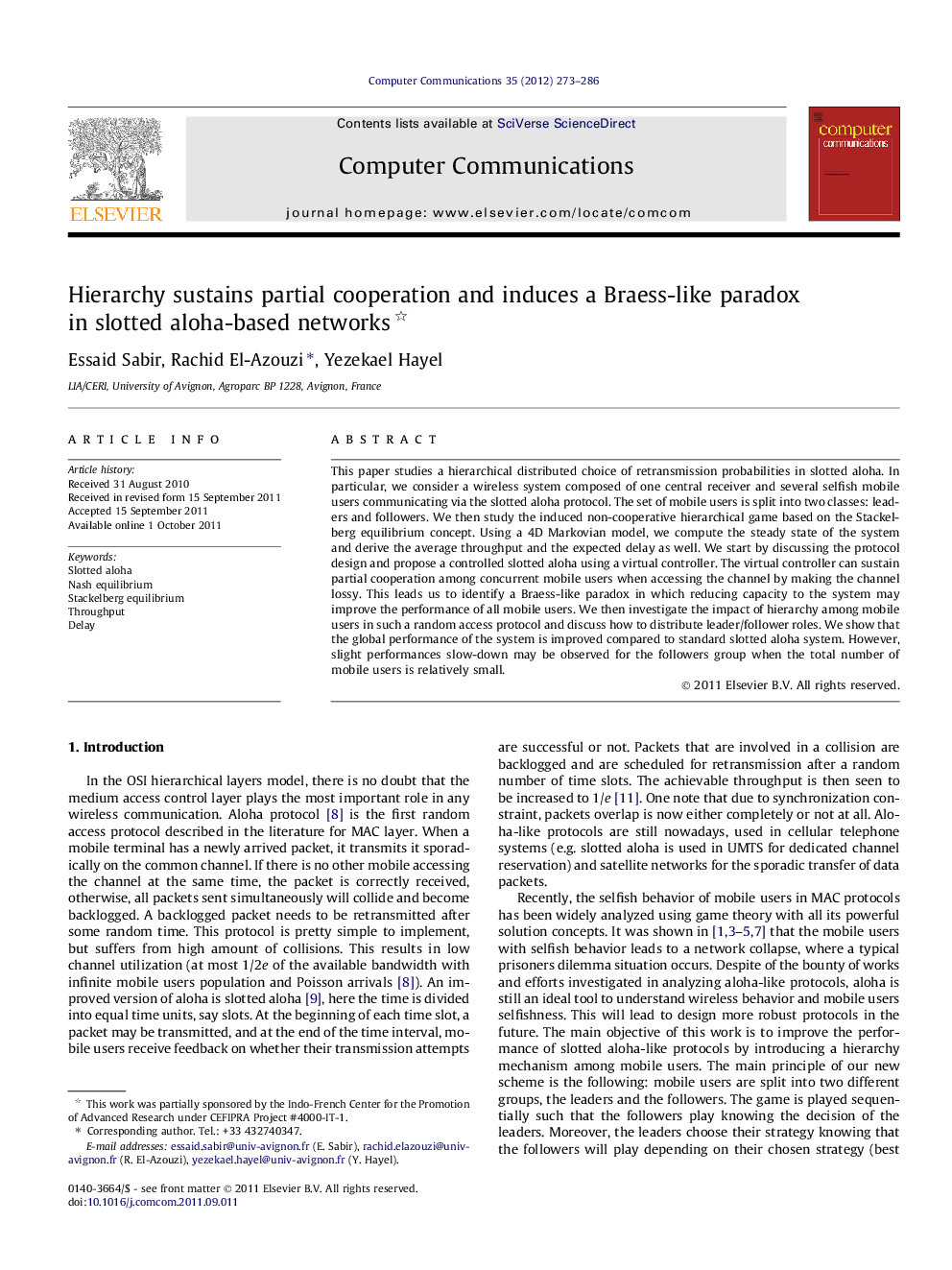| Article ID | Journal | Published Year | Pages | File Type |
|---|---|---|---|---|
| 446264 | Computer Communications | 2012 | 14 Pages |
This paper studies a hierarchical distributed choice of retransmission probabilities in slotted aloha. In particular, we consider a wireless system composed of one central receiver and several selfish mobile users communicating via the slotted aloha protocol. The set of mobile users is split into two classes: leaders and followers. We then study the induced non-cooperative hierarchical game based on the Stackelberg equilibrium concept. Using a 4D Markovian model, we compute the steady state of the system and derive the average throughput and the expected delay as well. We start by discussing the protocol design and propose a controlled slotted aloha using a virtual controller. The virtual controller can sustain partial cooperation among concurrent mobile users when accessing the channel by making the channel lossy. This leads us to identify a Braess-like paradox in which reducing capacity to the system may improve the performance of all mobile users. We then investigate the impact of hierarchy among mobile users in such a random access protocol and discuss how to distribute leader/follower roles. We show that the global performance of the system is improved compared to standard slotted aloha system. However, slight performances slow-down may be observed for the followers group when the total number of mobile users is relatively small.
